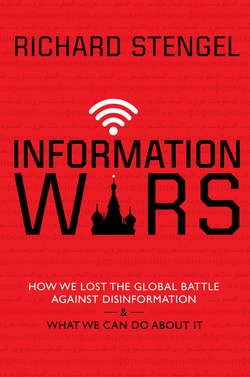Читать книгу Information Wars - Richard Stengel - Страница 18
На сайте Литреса книга снята с продажи.
Meetings Are Action
ОглавлениеWhen the 9:15 was over, people filed out, chattering, and headed back to their offices. When I first started, my then chief of staff had a daily meeting at 4:30 p.m., known as “vespers,” to go over everything that happened that day. Lots of offices at State had vespers. What I found was that by 4:30, I’d pretty much forgotten what had happened at the 8:30 and the comms meeting and the 9:15 as I went pell-mell through my day. After a month or so, I decided we should move vespers to 10 a.m., when I had everything fresh in my mind from the morning meetings.
So after the 9:15 ended, I would head back downstairs exactly the way I had come. And there, waiting in my office, in a U shape at the north end of my office, was my front office staff. I mentioned having four special assistants, but I also had two traditional assistants—one did my schedule and one did logistics and travel. I had a chief of staff. And the chief of staff had a deputy, who was the head of R’s policy planning staff. I had a speechwriter, a social media person, an advisor for countering violent extremism, a military aide, a congressional liaison—and I’m sure I’m forgetting a few others. This, by the way, isn’t counting the bureau heads who reported to me, the assistant secretary for educational and cultural affairs, the assistant secretary for public affairs, or the coordinator of International Information Programs. So, when we had a meeting in my office for just R front office staff, there could be 16 or 17 people. At Time, I had one assistant.
Each smaller meeting at State was a microcosm of a bigger meeting. So my little morning meeting recapitulated the Secretary’s 8:30. My chief of staff would lay out the day, and then we would go around the room, starting with the special assistants, who would review what was happening in their realm. Everyone in there felt that they were looking out both for me personally and for R equities, and I appreciated it. State was “turfy,” and people were adept at protecting their territory.
I discovered that my chief of staff, a foreign service officer, would schedule me with one meeting after another throughout the day so that I had no time to think or even react to what had happened in the last meeting. When she would say to me, “You’re back-to-back today,” she wasn’t kidding. This came from a variety of things, including the simple one of trying to cram as much work into a day as possible. But the other aspect of this in Washington was what I thought of as the “infantilization of principals.” This was the idea that principals—basically political folks—should be kept so busy, with absolutely everything done for them, that they never really made any decisions or choices other than the ones baked in for them by staff. Basically, every principal in Washington had so much staff, all of whom were so eager to write or contribute something, that you could go your entire day, every day, just reading off a piece of paper or a cue card of what you were supposed to say or do at a meeting. And many principals did just that. At meetings in the White House Situation Room I was often amazed that principals of agencies and cabinet officers would just numbly read from the notes that had been prepared by staff. I sometimes wondered why we didn’t hire actors. They certainly would have read the scripts better.
Pretty much everyone at State filed out promptly at 5 p.m. I had never seen that before. If you send an email to foreign service officers or civil servants at 5:05 p.m., don’t expect to hear back until the following morning. And if you send it at that same time on Friday, don’t expect to hear back until Monday morning. They either didn’t look at it or didn’t think it was appropriate to answer during non–office hours. At first, when I didn’t get answers to my emails, I thought that perhaps the server was down or that there was some other technical problem. I remember having IT guys come to look at my dusty old Dell desktop. Some of this had to do with the State Department work ethos, which was that something asked for today could actually be done tomorrow—or even next week. But part of this was the idea that to so many at State, even the simplest email was looked at as a kind of barbed weapon, a digital Trojan horse that might be a trap of some kind. An email could get you in trouble. It was a federal record. Folks were terrified of making a mistake. Hence, the answers were almost always bland and noncommittal.
So at 4:30 we summarized the day, and then we were all back in at 8 the next morning to do it all over again. As one longtime foreign service officer said to me, “Holding back the hands of time is a 24/7 job.”
